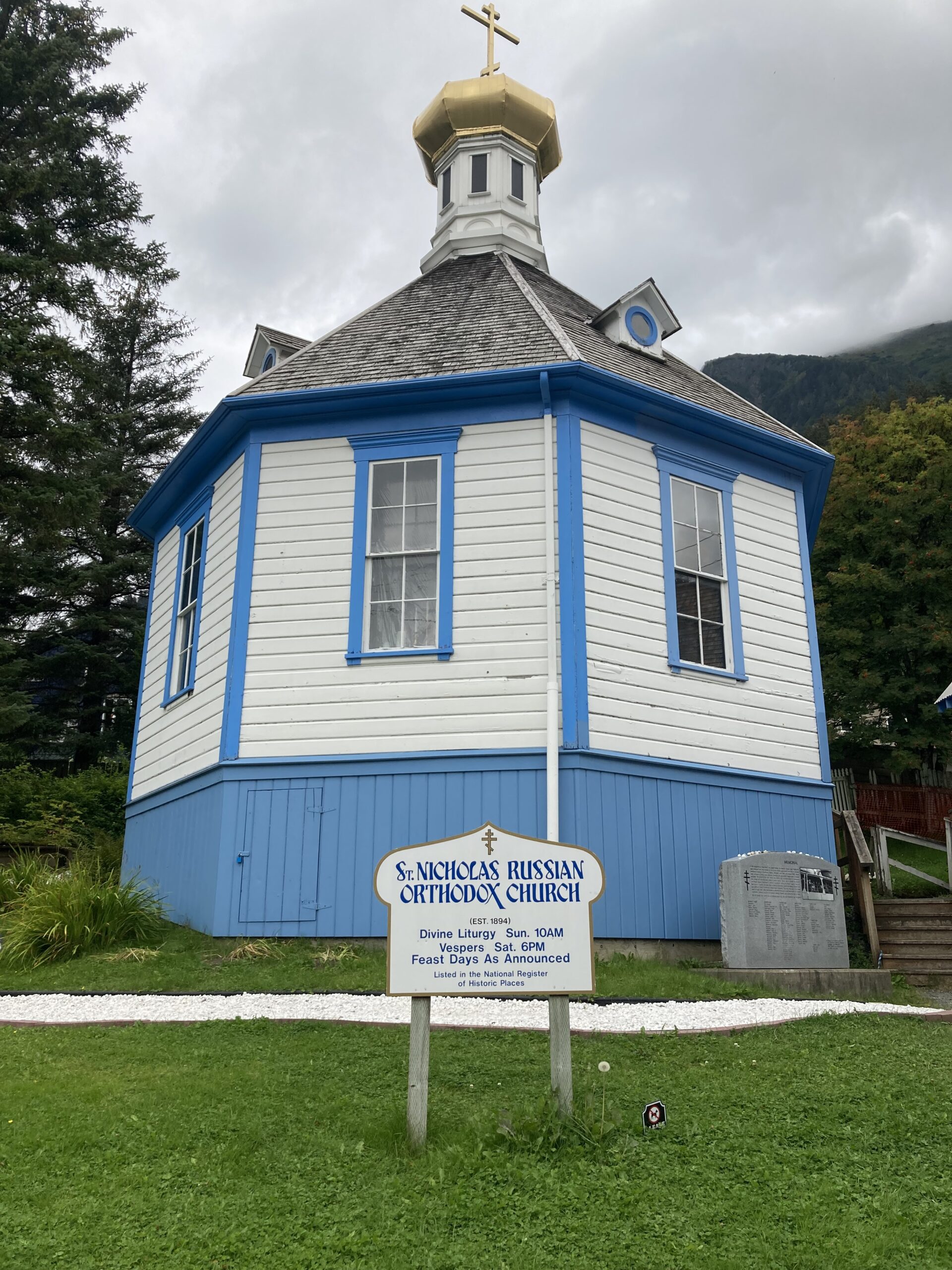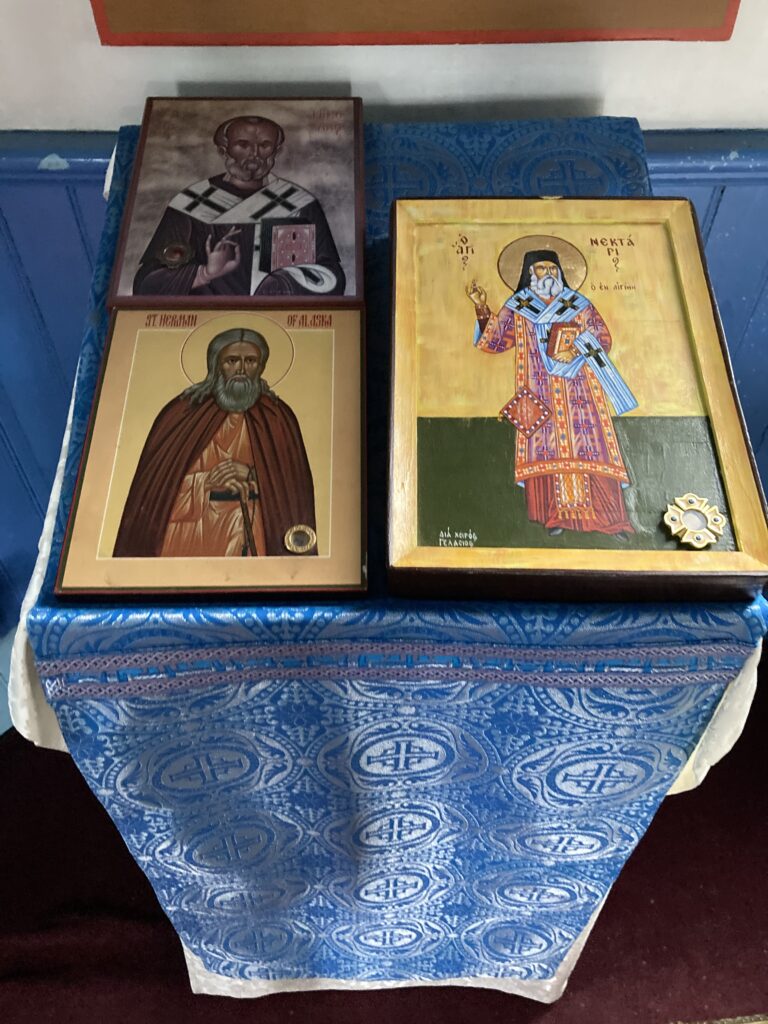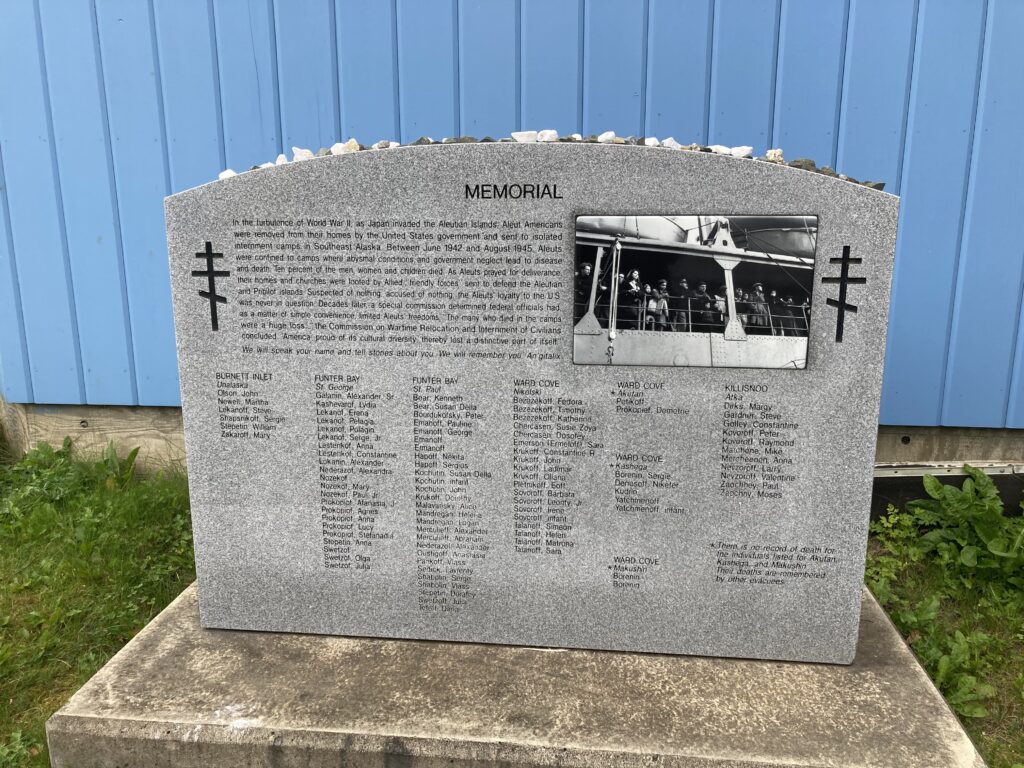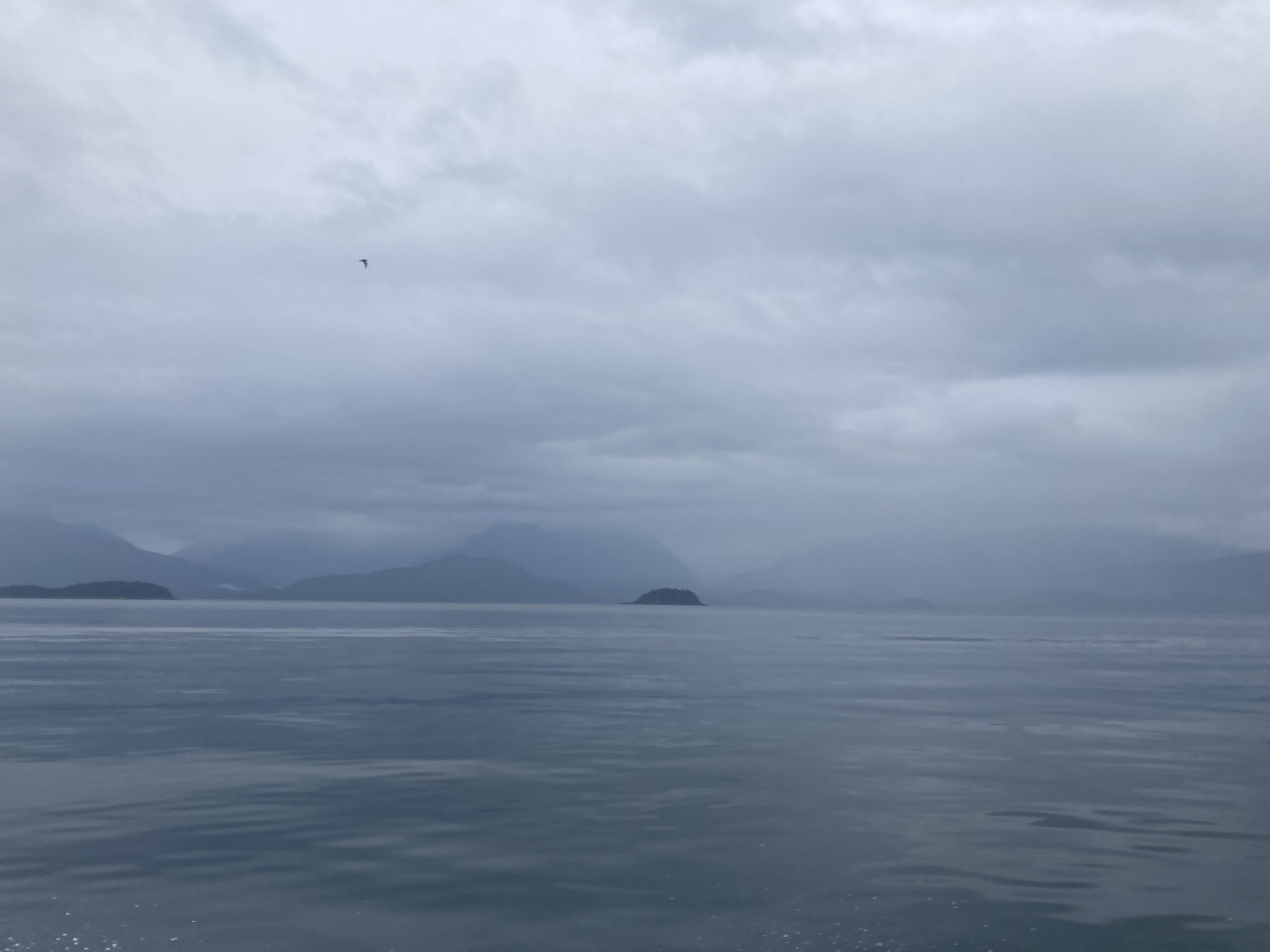
A Shameful Past
Just across the street from our Airbnb in Juneau is a lovely Russian Orthodox Church, which I remembered seeing the last time I was there in 1999. While waiting for it to be time to meet the shuttle for our whale watching trip, I decided to walk over and see if I could peek inside the church.

It’s a lovely little church with a long history in Juneau. From the church website:
St. Nicholas Orthodox Church was founded in 1893, at the request of the local Tlingit community. Constructed locally by Tlingit people and Serbian miners in 1893-94, the church was built on land donated by Yees Ganalax and using plans and funds sent from Russia. Furnished, decorated, and outfitted by generous gifts from the Russian Mission Society, the church was consecrated by Bishop Nikolai (Ziorov) in 1894, the church has been a fixture of the Juneau community and landscape ever since.
https://stnicholasjuneau.org/

In front of the church is a memorial to the Alaskan natives who died in internment camps during World War II. I had never heard of this shameful chapter in U.S. History prior to this trip, but I did see an exhibit about it at the museum in Fairbanks as well. I’m not a World War II buff by any means, and most of the history I remember is about Pearl Harbor, Europe, and Hiroshima and Nagasaki. I knew that the United States confined Japanese Americans to internment camps, our last dentist told us stories of being interred as a small boy. His father, also a dentist, sued to challenge the practice. I don’t remember hearing that Japan invaded Alaska, way out in the Aleutian Islands, or that the U.S. subsequently interred Alaskan natives. Supposedly this was for their safety, to protect them from the Japanese invaders, but somehow it was never deemed necessary to inter any of the white population from these villages.
I believe the fatality rate of was about 10%, the conditions were horrible. A quote from the article I linked above:
Evacuation and internment during World War II is remembered by the Unangan today, but this moment exists on the margins of America’s collective wartime history. Their experiences at the hands of a disorganized and poorly executed operation and their struggles to survive and maintain their dignity when faced with such tragedy, however, deserve a prominent place in the history of the American home front and the Pacific Theater of the war alongside the more well-known removal and incarceration of Japanese Americans from the mainland West Coast.
National WWII Museum
This is an important chapter in our history, and I was glad to have learned this sober lesson.


21 Comments
nance
I never knew any of this, and I was an American History minor in college. It really is shameful.
J
I know, I was very surprised when I came across the exhibit in the museum in Fairbanks.
Ally Bean
A sad story, but same as it ever was. Ditto what Nance said.
J
Same as it ever was indeed. Why do we suck so much?
San
Yes, that is shameful. But at least, it’s memorialized and not swept under the rug!
J
I would say that it has been swept under the rug for most of us, it is not taught in schools in the other 49 states. I don’t know if it is taught in Alaska. Horrible, right?
Margaret
I didn’t know that either and it is shameful. Sadly, it doesn’t surprise me though. 🙁
J
Isn’t that the worst of it? That it’s no surprise? Ugh.
Lisa’s Yarns
I didn’t know about this either and I just read parts of your post out loud to my husband who is a pretty big history buff. He did not know about it either but said he is sadly not surprised this happened. I am not either. But ugh it is very sad. I did not learn about the Japanese internment camps in my history classes in high school. I think I learned about them by reading the fiction book, ‘Snow Falling on Cedars’ which was an excellent book and very impactful for me to read. I think a lot of our country’s history gets swept under the rug sadly.
J
Lisa, I read ‘Snow Falling on Ceders’ years ago, and loved it. So very sad.
NGS
The same “it’s for their protection” logic was used for the Japanese-American internment camps, too. Such a terrible way to frame racism. *sigh* Thanks for sharing this so the history isn’t forgotten.
J
Engie, I don’t think I knew that the same excuse was used for Japanese Americans. Horrible.
Daria
I was born in Russia so when I saw the Russian Orthodox icons on the front of the post, I became curious. What a lovely little church! So small. It seems active, with service times posted… Similar to others, I never knew about the terrible treatment of Alaskans. Thank you for educating us.
J
Daria, it was indeed a lovely little church! And indeed active. I like to light a candle when I go to churches that have them, but there was no one there when I went inside, and they had a sign saying, please no candles when unmanned, which made a lot of sense to me.
Nicole MacPherson
It is so interesting you posted this today, J, because I was thinking about Japanese internment camps only yesterday. Canada also shares this shameful chapter in history. My husband and I were driving home through the mountains, and we stopped for a break at Three Valley Gap, which we have stopped at many times and which is also a tourist site. There was a sign that I never read before and lo and behold, Three Valley Gap was the site of a Japanese internment camp! It’s a terrible part of our past.
J
Goodness, I had no idea that Canada also participated. So much history that we do not learn, because it is difficult or paints our country in a less than flattering light. How are we supposed to learn from our mistakes?
Stephany
I think I learned more about the Japenese internment camps from The Baby-Sitter’s Club books than I ever did in school, and it was written in a very safe-for-kids way so I never really knew the extent of it. It still feels like a part of our history that we talk very little about, and it’s so shameful. Thanks for sharing this!
J
I’ve never read those books, so had no idea they went into more serious subjects like this. That is wonderful.
Tobia | craftaliciousme
It is so sad what war y– no matter where – does to people. Always on cost of others. You would think we had learned by now that the horrors are a tragedy and yet here we are. Wars all over.
I have not heard about this particular incident. So much that goes unknown….
J
Tobia, you are so right about war and how we never seem to learn.
I wondered whether I would have learned about this if I had stayed in Alaska a few more years? If they taught it in school back then?
Pingback: